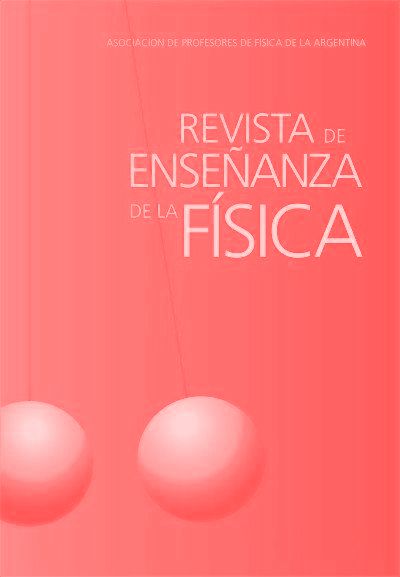Competency-based education to teach electromagnetism
DOI:
https://doi.org/10.55767/2451.6007.v32.n2.31184Keywords:
Competency-based education; Electromagnetism; Proposal; Engineering undergraduate coursesAbstract
Competency-based education in undergraduate engineering courses entails designing, implementing, and assessing specific teaching methods. Although electromagnetism is a particularly abstract topic to study, there are a few cases related to its teach-ing within the proposed methodology in the literature. The present paper addresses Ampère’s Law through collaborative project learning within the subject Physics II in undergraduate engineering courses at Universidad Tecnológica Nacional (Argentina). It details the necessary skills required for the proposal, as well as the assessment criteria. Students were asked to work on a pro-ject consists of the building of a mechanism that shows the working of an industrial machine, based on Ampère`s Law. They were evaluated using rubrics and, in turn, teachers’ and students’ opinion was requested through a questionnaire and a survey respectively. The findings were encouraging and showed teachers’ and students’ interest in this practice; all groups of learners managed to pass the work and achieved the proposed competencies. Some improvements will be made next year by teachers themselves applying this method. This study expresses new voices and presents an alternative perspective on educational de-signs. However, it is necessary to go deeper into this educational approach with the aim of improving the science educational method.
References
Cerato, A. y Gallino, M. (2013). Competencias genéricas en carreras de ingeniería. Ciencia y Tecnología, 13, 83-94.
Consejo Federal de Decanos de Ingeniería. (2018). Propuesta de estándares de segunda generación para la acreditación de carreras de ingeniería en la República Argentina “Libro Rojo de CONFEDI”. Recuperado de https://confedi.org.ar/download/documentos_confedi/LIBRO-ROJO-DE-CONFEDI-Estandares-de-Segunda-Generacion-para-Ingenieria-2018-VFPublicada.pdf
Delors, J. (1996). La educación encierra un tesoro. Madrid, España: Santillana y Ediciones UNESCO.
Giordano Lerena, R. y Crimelo, S. (2014). Competencias en ingeniería y eficacia institucional. Ingeniería solidaria, 9, 119-127.
Kofman H. A. y Concari S. B. (2000). Dificultades conceptuales con la ley de Ampère: análisis bibliográfico y simulación como propuesta. Recuperado de http://www.fiq.unl.edu.ar/galileo/download/documentos/ampere.pdf
Lescano, A., Demichelis, N., Culzoni, C. y Alegre, L. (2019). Propuestas para desarrollar competencias en el tema Óptica Geométrica. Revista de Enseñanza de la Física, 31, 457-463.
Lozano Días, A. (2010). Reseña de “Las cinco mentes del futuro” de Gardner, Howard. Enseñanza e Investigación en Psico-logía, 15, 431-432.
Martínez, M., Amante, B., Cadenato, A. y Rodríguez, R. (2013). Una propuesta de evaluación de competencias genéri-cas en grados de Ingeniería. Revista de Docencia Universitaria Vol.11 (Número especial, 2013), 113-139.
Moya, D., Álvarez Ortiz, M., Andrés Abellán, M., Bernabéu Cañete, R., Botella Miralles, O., Copete Carreño, M. A., Ferran-dis, P., Gómez Ladrón de Guevara, R., González Piqueras, J., López Serrano, F. R., Lucas Borja, M. E., Monreal Montoya, J. A., Orozco Bayo, E., Pulido García, L., Selva Denia, M., Tendero Lora, A., Villén Altamirano, J. y García Morote, F. A. (2015). Evaluación de competencias de aprendizaje mediante rúbricas en el grado de ingeniería forestal y del medio natural. Recuperado de http://blog.uclm.es/uvtnetwork/files/2013/03/Evaluaci%C3%B3n-de-competencias-de-aprendizaje.pdf
Resnick, R., Halliday, D. y Krane, K. S. (2007), Física. Volumen 2 (5° ed.). México: Continental.
Downloads
Published
Issue
Section
License

This work is licensed under a Creative Commons Attribution-NonCommercial-NoDerivatives 4.0 International License.
Aquellos autores/as que tengan publicaciones con esta revista, aceptan los términos siguientes:Los autores/as conservarán sus derechos de copiar y redistribuir el material, bajo los términos estipulados en la Licencia de reconocimiento, no comercial, sin obras derivadas de Creative Commons que permite a terceros compartir la obra bajo las siguientes condiciones:
- Reconocimiento — Debe reconocer adecuadamente la autoría, proporcionar un enlace a la licencia e indicar si se han realizado cambios. Puede hacerlo de cualquier manera razonable, pero no de una manera que sugiera que tiene el apoyo del licenciador o lo recibe por el uso que hace.
- NoComercial — No puede utilizar el material para una finalidad comercial.
- SinObraDerivada — Si remezcla, transforma o crea a partir del material, no puede difundir el material modificado.
- Los autores/as podrán adoptar otros acuerdos de licencia no exclusiva de distribución de la versión de la obra publicada (p. ej.: depositarla en un archivo telemático institucional o publicarla en un volumen monográfico) siempre que se indique la publicación inicial en esta revista.
- Se permite y recomienda a los autores/as difundir su obra a través de Internet (p. ej.: en archivos telemáticos institucionales o en su página web) antes y durante el proceso de envío, lo cual puede producir intercambios interesantes y aumentar las citas de la obra publicada. (Véase El efecto del acceso abierto).










